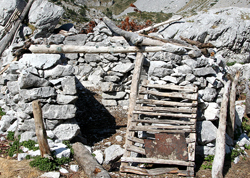
The local media in the Pcinjski District

Whenever I have free time, I like to have a drink with friends whose only contact with the media amounts to watching television – mostly films and sport matches – and occasionally reading newspapers with their morning coffee, especially the crime section. They are convinced that writing newspaper articles is the easiest of all jobs – and that it entails huge salaries. They are also certain where that money comes from: of course, from secret funds created only for the purpose of bad-mouthing this wonderful country. I am not annoyed by such comments anymore since I have realized that although everyone has an opinion, not everyone has a smart opinion. Once I met an old friend who asked me what I was doing. I told him I was a journalist in Vranjske. His response: "That's OK, but are you doing something serious, something for the municipality or are you working for some company?" Stereotypes are hard to fight and I still live with a stigma of a mercenary and a loafer. For those who are not aware of what this is all about, most of the media and journalists in Southern Serbia struggle to survive and can barely make ends meet. They are often exposed to political pressure and unfair competition. The so-called public service broadcasters in Vranje, Bujanovac and Presevo are not affected by this circumstances and their employees (I cannot call them my colleagues, aside from few exceptions) do not have to worry about the quality of their output and whether their (taxpayer-financed) paychecks are going to be late or not. The most drastic example of this twisted perception of journalism is certainly Radio-Television Vranje, which has received the status of a regional TV several years ago, but is still financed only by taxpayers from the largest city of the Pcinjski District. The broadcaster, which is directly controlled by the Socialist Party of Serbia – a member of the ruling coalition in Vranje together with the Democratic Party and G17 – operates similarly to all other public companies in Serbia, with overwhelming nepotism, party politics, taboo subjects, self-censorship and inter-ethnic intolerance. There is no quality to speak of. This model of journalism is also evident in municipal broadcasters in Bujanovac and Presevo; however, due to inter-ethnic tensions, emphasis was placed on the ethnic share of the aired programme that would please both Serbians and Albanians, instead of high-quality and accurate information. The resulting mixture has proved satisfactory only to the municipal leaders, who do not care that around 30 employees are not capable of creating an hour of programme a day. Apart from the citizens, several private broadcasters and their owners suffer from these circumstances and struggle to survive in unequal market conditions. With regard to print media, aside from the Vranjske weekly (which I will not comment on because I work there; at the same time, I think their story is widely known), a weekly magazine has been recently launched by the National Council of Albanians – although it is published irregularly in expectation of financial assistance from the state. There is also the Nova Slobodna Rec weekly magazine that was launched in Vranje last September under the auspices of the Simpo company (which is, as the state officials would say, a 'guarantor of piece and stability in Southern Serbia') on the ruins of a municipal media outlet that was shut down few years ago. The intention behind the new magazine was to offer free advertising space and destroy Vranjske. The effort has failed. But, who cares about the media anyway, especially in Southern Serbia? Those who have never even written a postcard believe that nothing can be easier than authoring a journalistic article. In Serbia, everyone thinks that they could be a successful football selector (or a mayor, minister, director) and if you offered such a position to the first person you meet on the street, he/she would gladly accept it. Everyone here has the right to comment on the work of journalists, but no one would want to be a journalist.
Nikola Lazic
MC Newsletter, July 15, 2011
View all comments (0) Leave a comment
Published comments contain opinions that are not the opinions of Media Center. Responsibility for the content of messages and their accuracy lies on the website users who posted them.
 |
| The content of this article does not necessarily reflect the view of the Media Center. The author bear full responsibility for the content of the text. |





